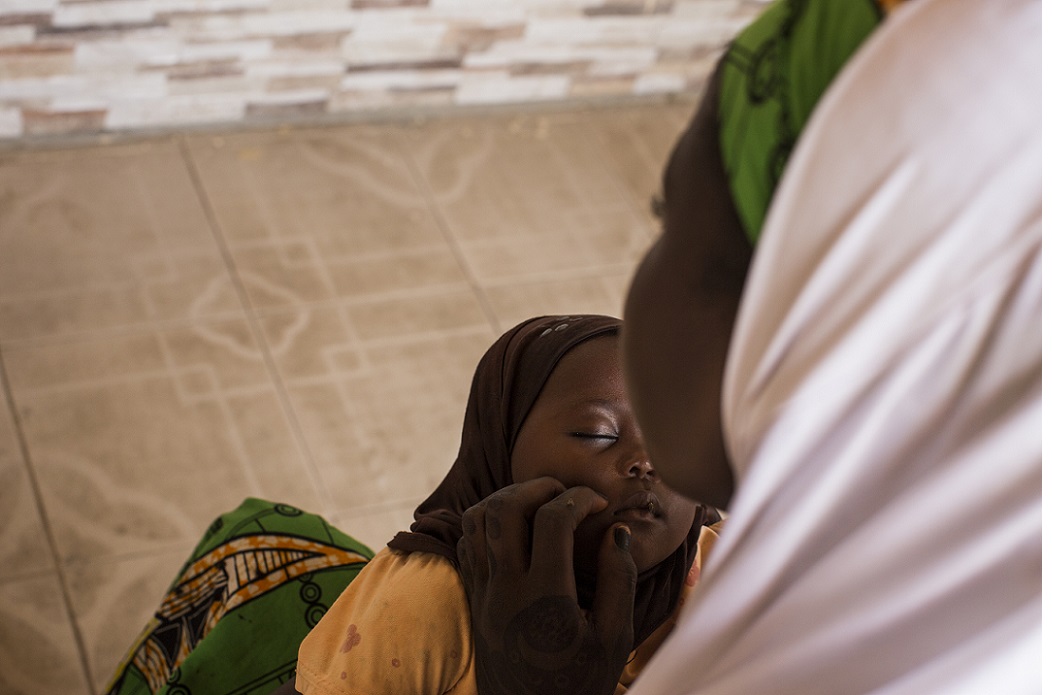- 4 mins read time
- Published: 8th February 2017
West Africa Crisis: food shortages threaten millions
The devastating conflict in West Africa is continuing to cause severe food shortages, plunging the region into a serious humanitarian crisis, and leaving nearly 11 million people in need of emergency aid.
Violent acts by militant insurgency group Boko Haram over the last seven years, along with military operations to counter them, have displaced around 2.6 million people in the Lake Chad Basin region, which is made up of Nigeria, Niger, Chad and Cameroon. This is Africa’s fastest growing displacement crisis.
The number of displaced people in the most affected areas has tripled over the last two years. Most of the displaced families are sheltered by communities that count among the world’s poorest and most vulnerable.
Food insecurity and malnutrition in the affected region have reached alarming levels. Thousands of people are estimated to have died already, many of these young children. There is a strong likelihood that at least 400,000 people could currently be experiencing famine in North East Nigeria.
FORCED TO FLEE
Since Boko Haram kidnapped Kadija* and forced her to marry a fighter to whom she bore a child, Kadija* faces stigma from her community, as does her child who is seen to carry ‘bad blood’. She currently lives in a camp for people displaced by the conflict with Boko Haram because her father disowned her. Kadija* was taken to the bush where she gave birth with no medical facilities. Once she deemed the baby strong enough she made her escape.
After fleeing from Boko Haram she was detained by the Nigerian military. She said: “I was kept with other women who had been forcibly married. We were tortured and dehumanised by the military. We were called wives of Boko Haram and we spent one month in detention. It was a harrowing experience. Then they released me.”

Kadija*, 18, holds her baby at a house in Maiduguri, Nigeria. Photo: Sam Tarling/Oxfam
Kadija and her baby aren’t the only ones struggling in north-eastern Nigeria right now. Brothers Digma* and Omar* (pictured below) are helping their father Hassan* in a field he rents on the outskirts of Maiduguri, Nigeria, as it’s the school holidays. Their father Hassan* was a prosperous farmer before fear of violence from Boko Haram forced him to flee his village.
Hassan* said: “We were so afraid, even if we had food we couldn’t eat what was put on the table. It was terrible. We couldn’t even come to the farm. If we came to the farm Boko Haram would come on motorcycles and kill or abduct you. We had to leave our farm and our livestock and run to the city. Before Boko Haram attacked I had a bigger farm but now I am too scared to farm it – maybe next year.”
While Hassan’s* old farm previously left him with surplus to sell, he now has to work as a labourer in order to make up the shortfall in food for his family. He said: “I have to feed my six children, my wife, my grandmother and two grandsons. How many days will [this food] last us? It’s just not going to be enough. The government have not supported us. We have to do things ourselves.
“This land has been worked on for so many years. At the other farm we had millet, sorghum, groundnuts and beans and the harvest was great. The fields there are much denser and much richer compared to this farm. The soil at the other farm is loamy. This is just sandy.”

Brothers Digma* (aged 8, and Omar* (10) stand in a field their father rents on the outskirts of Maiduguri, Nigeria. Photo: Sam Tarling/Oxfam
The conflict between Boko Haram and governments in this region has affected some of the world’s poorest people. Most of them in rural areas are farmers, and many like Hassan* have not been able to grow any crops for three years. They are in urgent need of food, water, and medical care. They are living in camps for displaced people and among host communities and are struggling to survive.
WHAT OXFAM IS DOING
The situation is dire across this region. People are in urgent need of food, water, medical care, shelter and safety.
Oxfam has helped more than 250,000 people in Nigeria, Niger and Chad since it began responding to the crisis two years ago.
In Nigeria Oxfam is distributing emergency food support food and cooking equipment, providing people with clean water and better sanitation, as well as seeds and tools to help traders and farmers. We have also set up community protection groups for women to give them information about access to support facilities if they have suffered from sexual violence and exploitation.
In Niger, Oxfam is rehabilitating and constructing boreholes to provide safe, clean water to people who have fled their homes and communities, and we are delivering life-saving food assistance to families severely affected by the crisis.
In Chad, Oxfam is distributing cash and tarpaulins for shelter, and providing clean water to help prevent the spread of diseases.
We are ramping up our programmes and are seeking funds to expand our response to help 1.5 million people in the next 15 months.
HOW YOU CAN HELP
Oxfam is urgently seeking funds to help where it’s needed most.
Please help the people of West Africa – give what you can and get food and clean drinking water to people who urgently need it.
* All names have been changed to protect identities.




